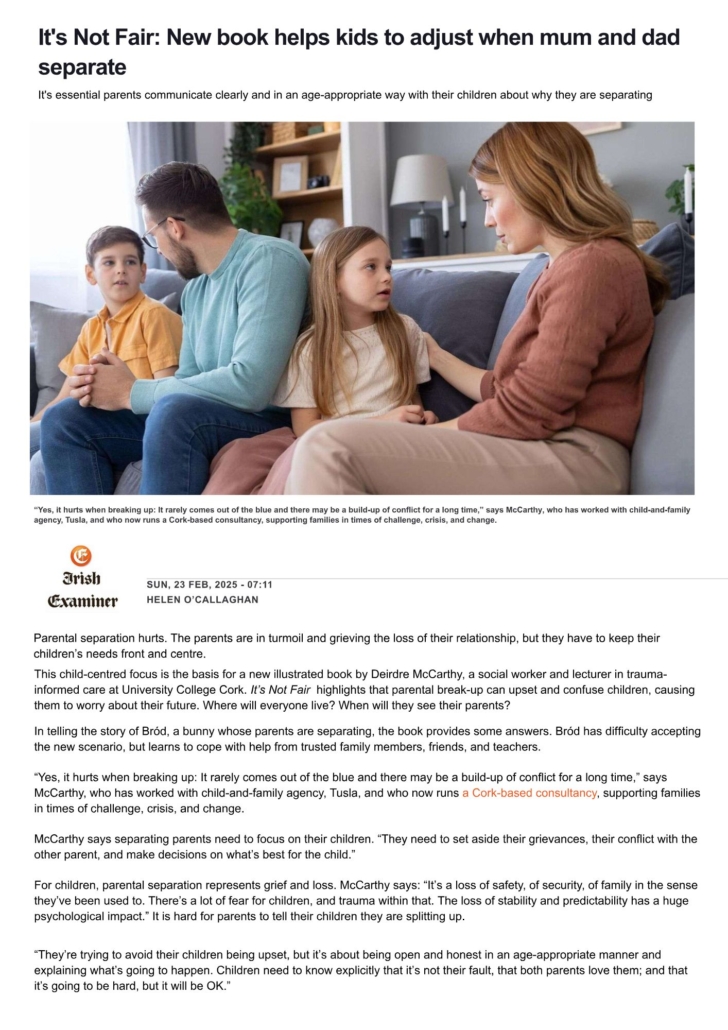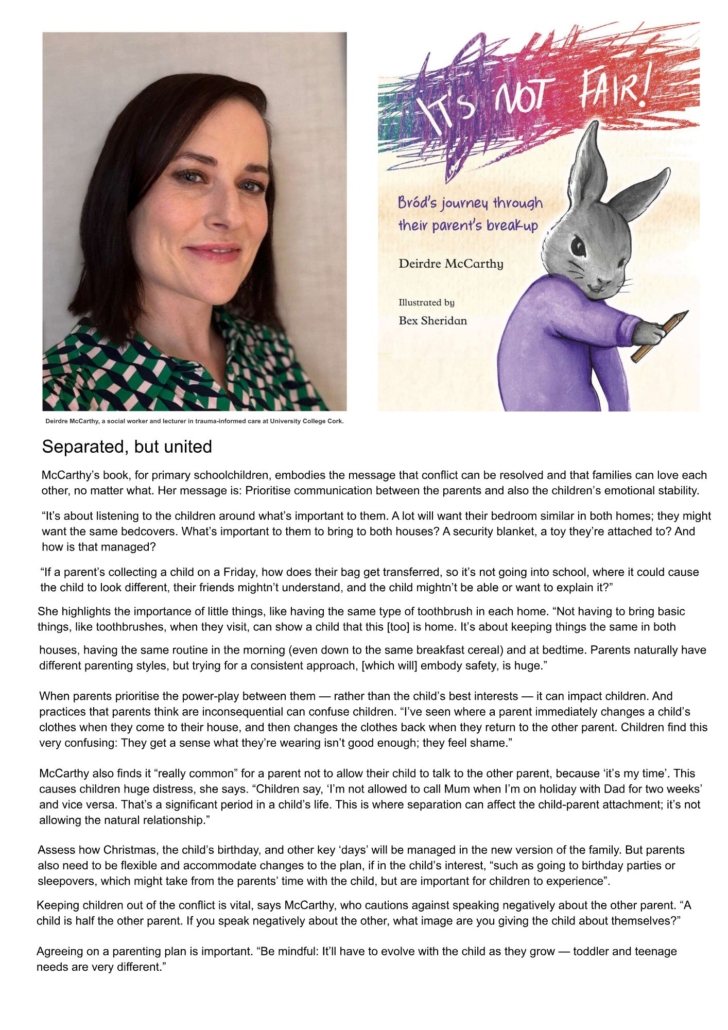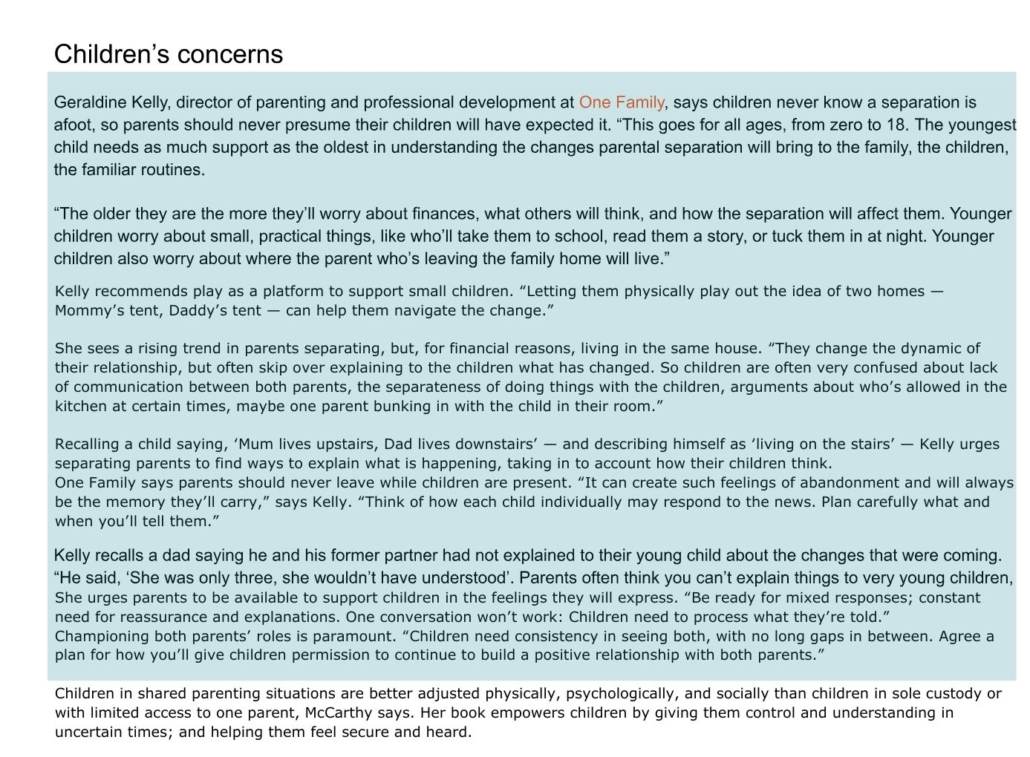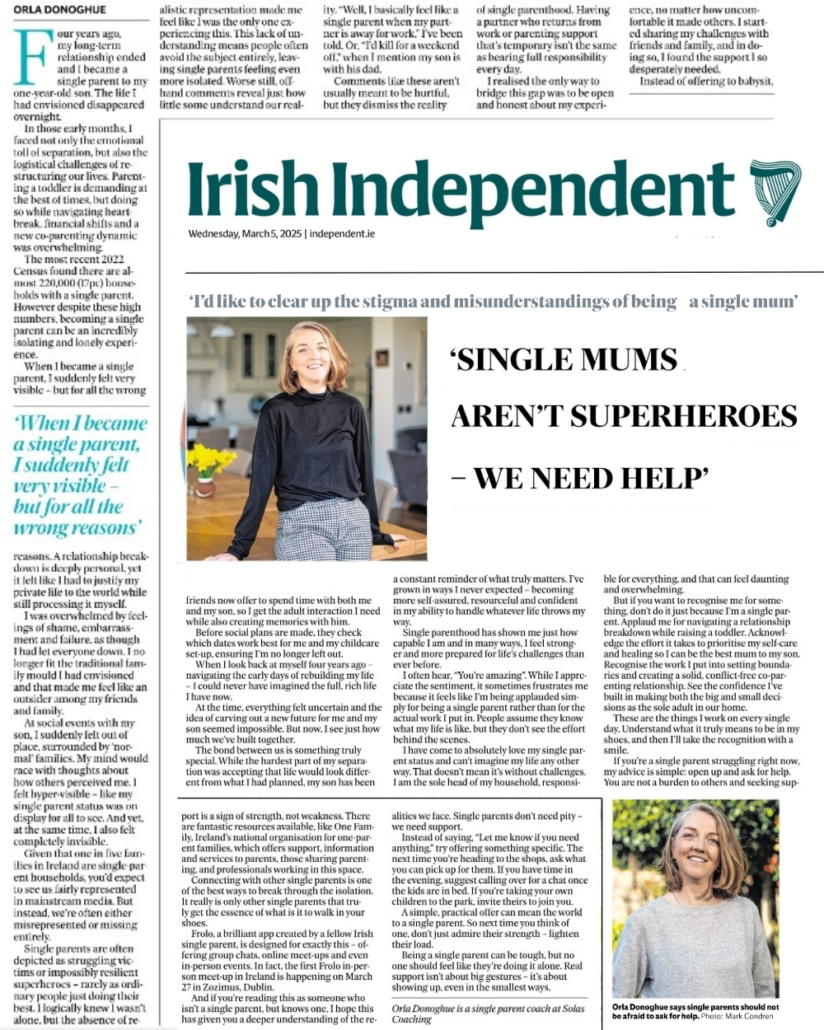One Family on RTÉ 6.1 News
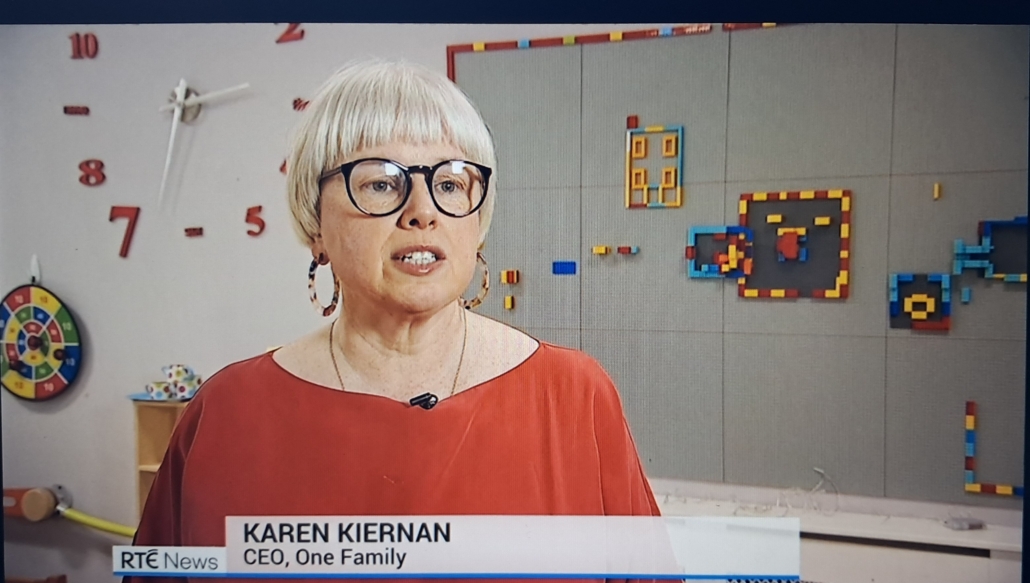
One Family responded to the latest ESRI research showing impact of cost-of-living crisis on low-income households. The new research showed low-income households were only able to cope with crisis by taking on additional loans, or cutting on essentials such as food, clothes and energy.
You can watch Karen Kiernan, our CEO, here (skip to 16:30 approx)
One Family response to CSO figures
Carly Bailey, One Family Policy Manager, was quoted in The Irish Times in response to the latest CSO statistics.

One fifth of these households reported struggling to make ends meet and 54 per cent found the basic cost of housing to be a “heavy burden”, according to the CSO’s annual Income and Living Conditions survey.
Overall, the research found the number of people living in enforced deprivation, measured by their ability to afford a specified range of items, last year fell to 15.7 per cent from 17.3 per cent in 2023. However, the rate of deprivation among single adult households with children increased by almost five percentage points to 46.3 per cent.
Deprivation among those with health problems (38.5 per cent) and the unemployed (37.8 per cent) also remained substantially higher.
Carly Bailey, Policy Manager at One Family (formerly Cherish) said the data should serve as a “wake-up call” to the new Government.
“Unlike other groups, one-parent families have an increased deprivation rate, up a staggering 11 per cent compared to last year. Worryingly, this tells us that almost half of all one-parent families are living in enforced deprivation, a rate that is almost three times greater than it is for two-parent families (16.2 per cent),” she said.
The findings come as “no surprise” to the One Family organisation, as it “fully reflects the growing numbers of families that have contacted us concerned about how to keep a roof over their heads and food on the table”, she said.
The organisation has called on Minister of State for Social Protection, Dara Calleary, to meet with its representatives to discuss what measures might be taken to address the issues highlighted for one-parent families.
The CSO findings further indicate the differences between how people in rented accommodation and owner-occupiers say they are coping financially.
Across the entire population, 29.5 per cent of households reported the cost of housing itself to be a heavy burden, down slightly on the previous two years.
But this stood at 41.4 per cent among people in rented accommodation.
The figure was about twice as high when renters alone were considered and about four times higher in households comprised of one adult and children.
The pattern was similar when debt related to loans and hire purchase agreement was considered.
As fuel costs reduced, however, so too did the total number of people saying they could not afford to adequately heat their homes, falling from 7.2 per cent in 2023 to 4.9 per cent last year. Some 8.2 per cent said they were forced to go without heating at some point over the course of the year.
There were broadly similar reductions in the numbers who reported being unable to afford new clothes, down from 8.1 per cent to 6.2 per cent, meet socially with friends during the previous two weeks, down from 11.8 per cent to 10.1 per cent.
Some 22.9 per cent of respondents said they could not afford at least one week of a holiday away from home in the previous year, down from 23.8 per cent in 2023.

